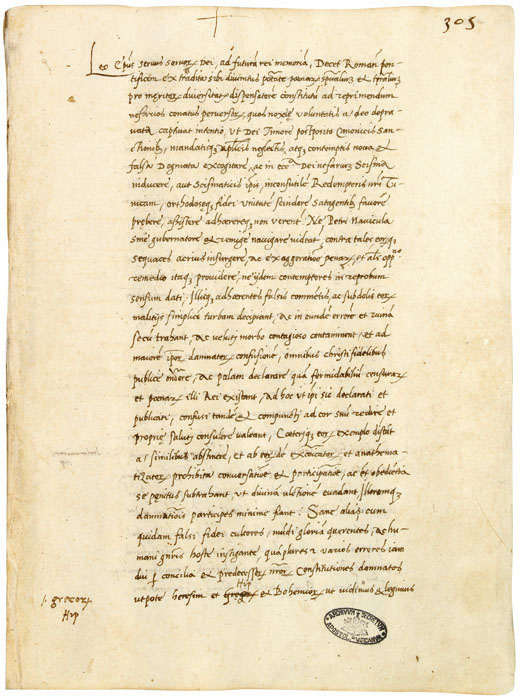|
Decet (other)
Decet may refer to: * Decet (music), a composition which requires ten musicians for a performance *Decet Romanum Pontificem __NOTOC__ (from Latin: "It Pleases the Roman Pontiff") is a papal bull issued on 3 January 1521 by Pope Leo X to effect the excommunication of German theologian Martin Luther and some of his colleagues—notably Andreas Karlstadt—for r ... (1521), the papal bull excommunicating Martin Luther * Romanum decet pontificem, a papal bull issued by Pope Innocent XII (1691—1700) on June 22, 1692, banning the office of Cardinal Nephew {{disambiguation ... [...More Info...] [...Related Items...] OR: [Wikipedia] [Google] [Baidu] |
Decet (music)
In music, a decet—sometimes dectet, decimet, decimette, or even tentet—is a composition that requires ten musicians for a performance, or a musical group that consists of ten people. The corresponding German word is Dezett, the French is dixtuor. Unlike some other musical ensembles such as the string quartet, there is no established or standard set of instruments in a decet. History Of the ensemble types named according to the number of musicians in the group, the decet and the larger undecet, duodecet, etc., are names less common in music than smaller groupings. In the eighteenth century, ten-part ensembles were most often encountered in the genre of the wind serenade, or divertimento (for example, Mozart, K. 186 and 166, both for 2 oboes, 2 clarinets, 2 cor anglais, 2 horns, and 2 bassoons). Because the wind-serenade tradition was carried on during the 19th century primarily in France, the term ''dixtuor'' is somewhat more widely used in French than is its English equivalen ... [...More Info...] [...Related Items...] OR: [Wikipedia] [Google] [Baidu] |
Decet Romanum Pontificem
__NOTOC__ (from Latin: "It Pleases the Roman Pontiff") is a papal bull issued on 3 January 1521 by Pope Leo X to effect the excommunication of German theologian Martin Luther and some of his colleagues—notably Andreas Karlstadt—for refusing to recant forty-one of Luther's '' Ninety-five Theses'', threatened by the earlier papal bull . Luther had burned his copy of on 10 December 1520 at the Elster Gate in Wittenberg to indicate his response. The title comes from the first three Latin words of its text. There are at least two other important papal bulls with the title : one dated 23 February 1596, issued by Pope Clement VIII, and one dated 12 March 1622, issued by Pope Gregory XV. Toward the end of the 20th century, Lutherans in dialogue with the Catholic Church requested the lifting of this excommunication, but the Roman Curia responded that its practice is to lift excommunications only on those still living. Roland Bainton, in "''Here I Stand'' after a Quarter ... [...More Info...] [...Related Items...] OR: [Wikipedia] [Google] [Baidu] |
